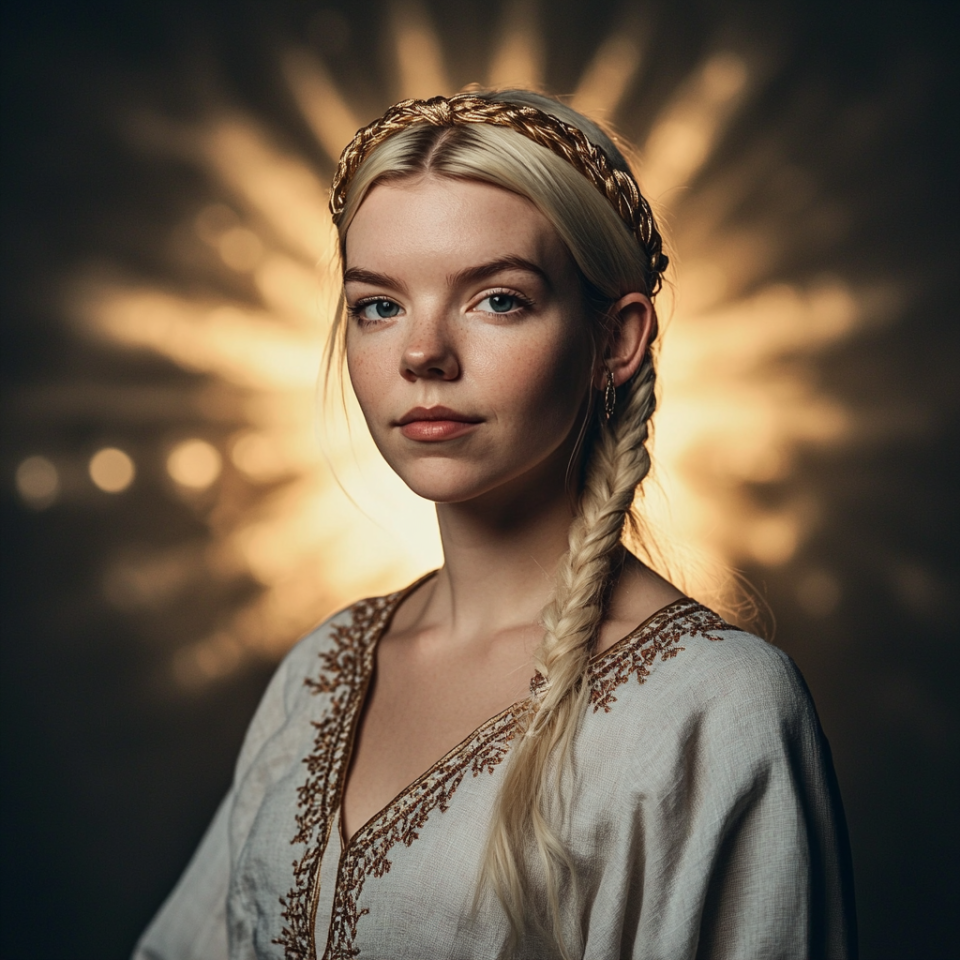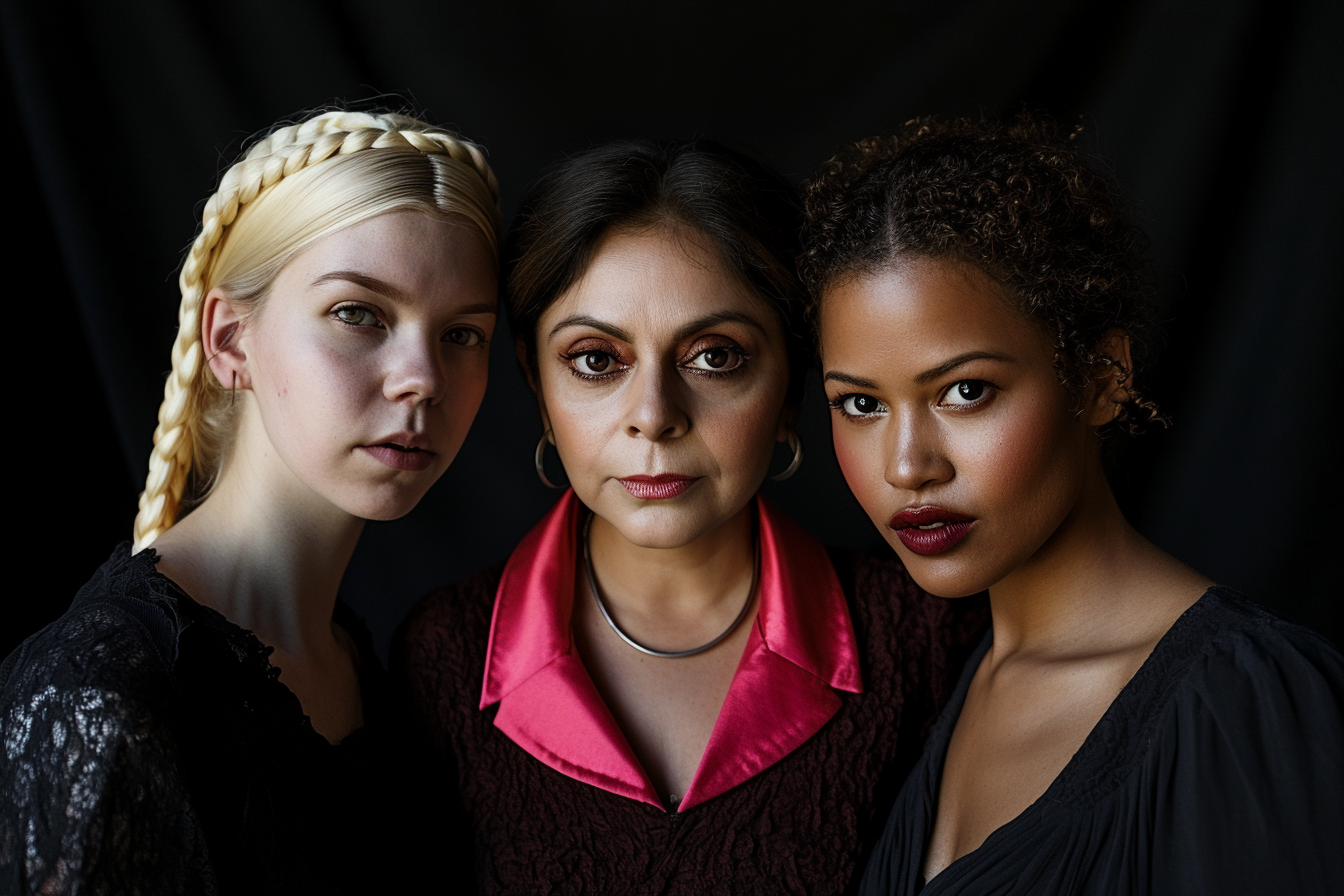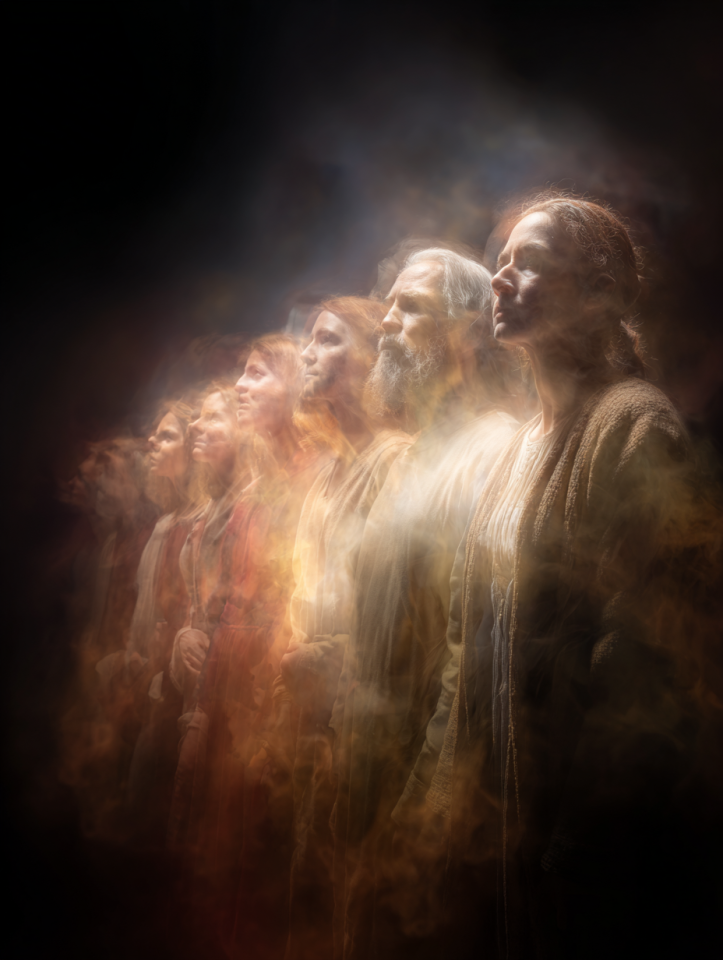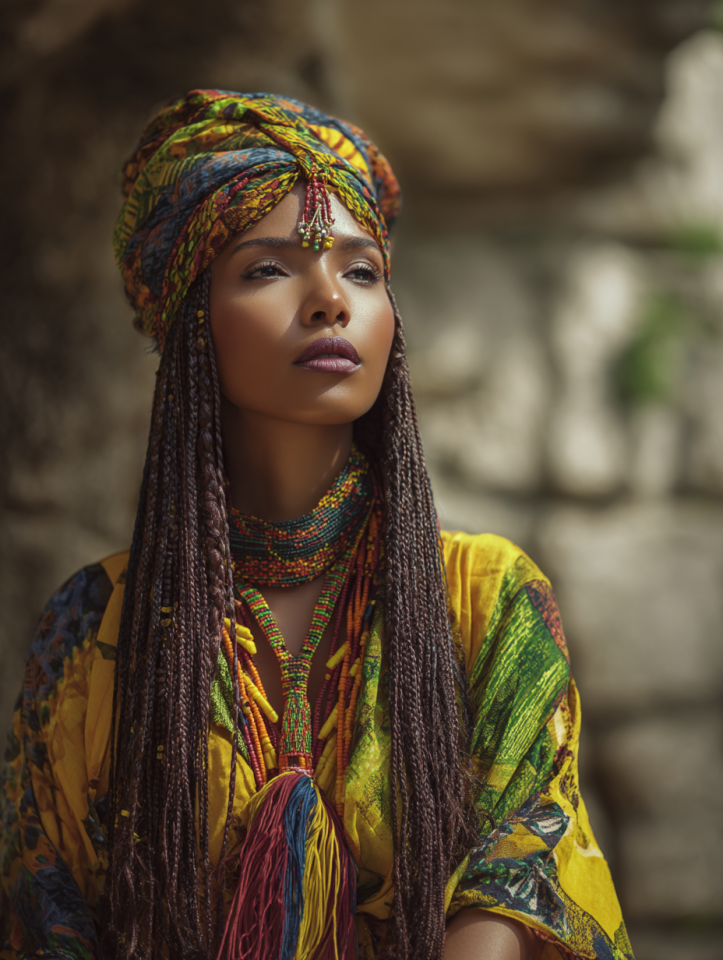Laima (LAI-mah)
Primal Unbound Prihleudhōs Deity
Laima (a.k.a. Clotho, Urðr, Renenutet, Shai's whisper, the First Thread)
From the moment a cry pierces the veil of the mortal world, **Laima is there**, fingers warm with the spin of potential. She is the first of the Fate Triad, the One Who Begins — not merely the spinner of thread, but the one who senses its color, its tension, its weight. Her presence lingers in the scent of amniotic water, the beat of a mother’s heart, the hush before a first breath. Though mortals pray to her for luck or mercy, it is not in her nature to alter — only to shape what *must be* into what *may become*. Her face has been glimpsed in many lands: as **Clotho** of Greece, **Urðr** beneath Yggdrasil, the Egyptian **Renenutet** who watched over births with nourishment and name.
Among her Baltic children, Laima walks beside women in childbirth, whispering to the midwife’s hands. Her judgments are quiet but unflinching: she does not choose as a tyrant, but as a weaver with too many threads already in motion. In older stories, she was not alone — sometimes seen accompanied by her sisters Dēkla and Kārta, sometimes said to be three faces of herself. In later whispers, it was even claimed that not even the gods could change a fate once Laima had spoken it. Her loom is not of wood or bone, but of breath, memory, and possibility.
Laima does not speak often, but when she does, her words stick like honey in the soul. A name she utters may rise to greatness or fall beneath a curse. Unlike her sisters, she is *called upon* — for luck in war, for ease in labor, for success in marriage. But calling her is not summoning; it is surrender. Those who beg for Laima’s favor do not seek control, but clarity — for Laima’s gift is not always a blessing, but always a revelation. Her face is reflected in the river priestesses of the Vistula, the desert scribes who mark a child’s first horoscope, and the inked hands of wise women who read palms as if they were maps drawn by Laima herself.
And still, she walks — unseen yet present, even in lands where her name is long forgotten. She is the curve of a newborn's fingers. The tremble before an oath. The moment in a story when a hero first chooses. Her thread runs through it all, and no matter what form she takes — be it goddess, whisper, star, or chance — she remains Laima, the Beginning.
Physical Description
General Physical Condition
Laima often appears in three forms, but always unmistakably herself: a woman of radiant, ageless grace, never young, never old. Her skin has the luster of pearl or smooth birch bark, subtly shifting with the light. Her hair is spun gold, silver, or flax — depending on the eyes of the beholder — always braided or wound into coils like skeins of thread. Her eyes are pale amber or pale gray, and they seem to hold both wonder and warning. She wears a robe that appears woven from twilight and dawn, shot through with fine lines like threads of fate. Around her wrists hang small bells, not for sound, but so fate may know where she is.
When seen by mortals — which is rare — she chooses forms familiar to their understanding of birth and life’s origin. In some tales, she appears as a midwife, in others a quiet bride, in others still, a tall weaver with a spindle that turns without her hand.
Mental characteristics
Sexuality
Laima experiences deep spiritual and emotional intimacy but does not express desire through physical union. Her love is creative and relational, rather than sexual. She binds souls together through fate, not flesh. She has been seen in legends offering tenderness to both men and women, gods and mortals — but never in pursuit or consummation. Her longing is for continuity, for pattern, for the music of threads weaving just right. She has no consort, yet all who love purely are under her gaze.

Species
Realm
Date of Birth
Evos Todhchaí
Gheydh
Gheydh
Family
Children
Sex
Female
Sexuality
Celestiaphilic
















